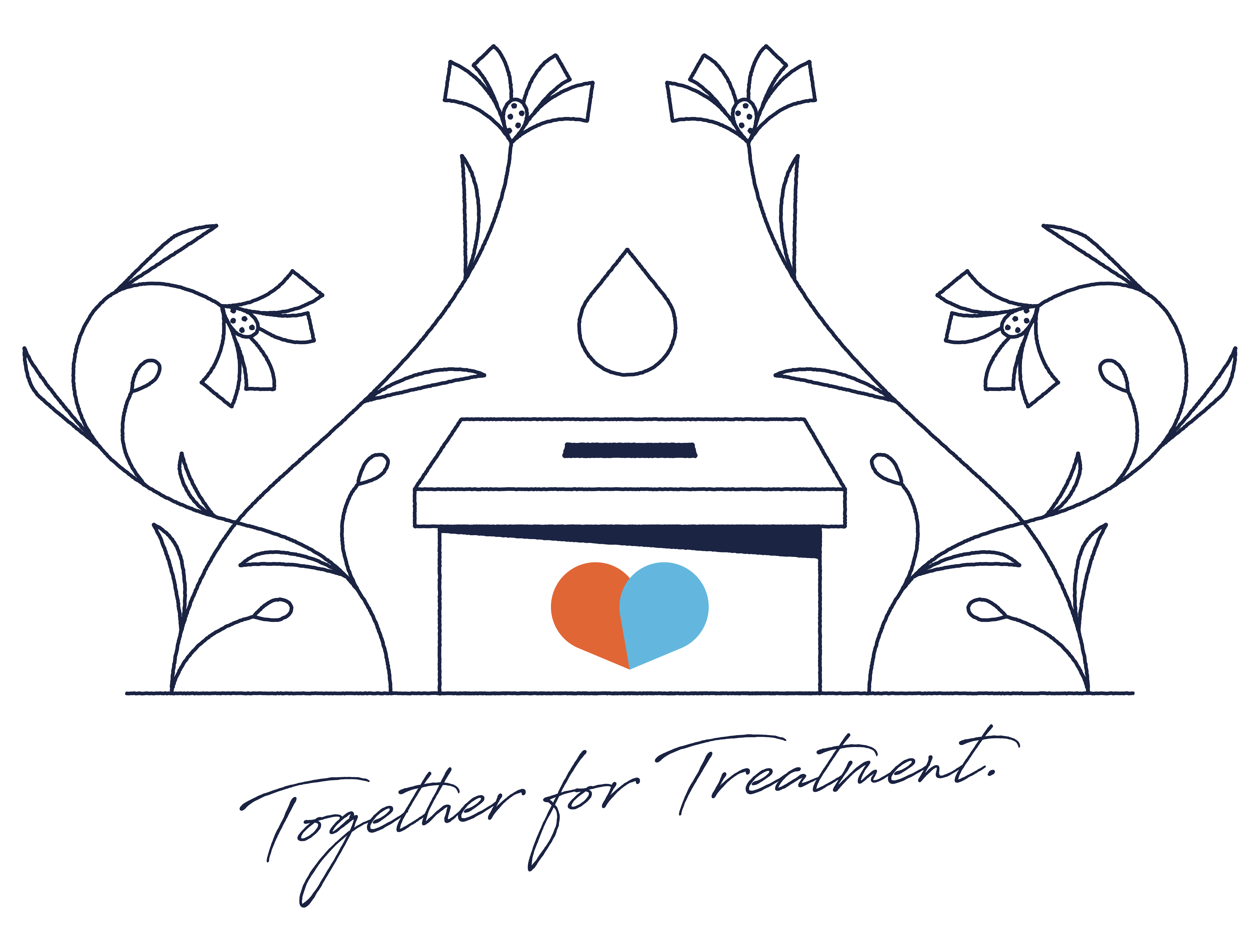Last month, a group of volunteers and staff members traveled to Washington, D.C., for the Infusion Access Foundation’s first-ever hill day. Together, we met with representatives from across the country to discuss and advocate for healthcare reforms and policies that will help improve access to treatment and strengthen patient protections for patients with chronic and complex conditions. Since our visit, the Safe Step Act, a bill introducing timely and fair exceptions to “step therapy” for patients in need, has already progressed closer to being signed into law. Legislative advocacy is one of the most exciting and impactful ways to impact healthcare. Patient stories are vital to ensuring that the voice of the patient and caregiver community is heard and connecting with your representatives can have an immediate personal effect.
It can seem overwhelming, taxing, and confusing if you’ve never participated in or even heard of legislative advocacy. It might even seem intimidating to think of sharing an emotional story in front of lawmakers. Vulnerability and openness to sharing your story require strength but also offer deep and profound connections to the people you meet, share your story with, and advocate for. How do you get started if you want to participate in a legislative visit or other forms of legislative advocacy?
There are several ways you can get prepared to ensure your visit or other legislative work goes as smoothly as possible. Your legislative visit, whether in person or online, is an opportunity to educate lawmakers about the issues that affect you and your community and to ask for their support on specific bills or policies. Remember that your representatives are accountable to you. They want to hear your story and the needs of your community. It’s important to make it personal to your lawmakers while staying specific. Before you visit, write to your legislators, or engage in other advocacy activities, research can help you narrow in on the key points you want to hit and clarify your asks.

Before Your Visit:
The first step towards preparing for your legislative visit is to determine who your representatives are. There are several websites online, such as the official Congressional website here and the official website for the House of Representatives here for federal legislators. These websites make it easy to find out who your representative is by simply inputting your home address or zip code. Alternatively, you can visit your member’s website for more specific information on their office and contact information. There are additional websites that can help you find contact information for legislators on the state and local levels, such as Common Cause. Researching your representative can help you learn more about their background, priorities, and stances on healthcare issues. It can be especially helpful if they’ve supported or led a bill you’re setting up a visit to ask about.
There are different ways to go about establishing a meeting with your representative. You can reach out to your representative’s office to set up a meeting or consider attending hill days organized by nonprofit organizations. Many nonprofits, including the Infusion Access Foundation and other condition-specific health nonprofits, have advocacy programs and host advocacy events. You can learn more about our advocacy priorities here, and discover various ways to get involved. There are some benefits to attending a hill day with a group or organization. You’ll often have easier access to the offices of representatives, and you’ll have additional support and a bigger impact advocating as part of a group. Explore nonprofits websites that align with your interests, and you’ll find ample opportunities to get involved. Again, patient stories are invaluable and in short supply.
If you plan to advocate individually, you can call or email their offices and ask for a meeting with the representative or their staff. Be polite and considerate, and start by establishing your purpose. For example, you can say, “I am a patient advocate from your district, and I would like to meet with you to discuss how the proposed Safe Step Act would affect me and the rheumatoid arthritis community.” You can also mention if you are part of an organization or a coalition that supports your cause. A coalition brings together organizations and individuals to unite behind a common goal. It helps to be flexible and patient, as scheduling a meeting can take time. In addition, be prepared to meet with a staffer or another member of your representative’s office. The healthcare staffer or aide is likely who you will meet with; they usually have the most healthcare expertise.
Take the time to learn about the issues you are meeting about, and educate yourself on your asks. Learn the details around the bills and policies you plan to ask about and familiarize yourself with the counterargument against each ask. It helps to have some facts and statistics to support your argument that can complement the personal and emotional storytelling efforts you make. It’s also helpful to bring along materials to support your asks. If you can prepare leave-behind materials such as business cards, one-pagers on the policy asks, and information about your community, you can ensure that the office will have valuable information on hand after your visit.

During The Visit:
Arrive on time for your meeting, and dress appropriately. In general, you’ll want to pack business attire for your trip. Once you arrive at your legislator’s office, introduce yourself and thank them for their time. If you are meeting with a staff member, remember they are very influential and can relay your message to the representative. Be prepared for the unexpected. You might be pressed for time, visiting between meetings in a busy office or the hallway. If you’re attending a virtual meeting, technology can go awry. Stick to your main points and requests, and avoid going off-topic or getting into too much detail. Most meetings on Capitol Hill are around 15 minutes, so a concise and engaging message is best. Combine facts and personal stories to support your position, but stay on topic. Respecting their time and opinions and avoiding distractions and arguments are important.
Express why you care about the issue, why your community cares, and why they should too. Emotion and personal experiences go a long way to connecting with them on a human level. Expand on how the issue affects you and your community and how their action can make a difference. Ask them for their support or commitment on specific bills or policies, and don’t be afraid to follow up with questions like “Can I count on you to co-sponsor this bill?” or “Will you vote yes on this amendment?”
Once you’re finished with your legislative visit, thank them for the opportunity, and their time, regardless of how you felt the visit went. Show them your appreciation for their interest, and thank them for any commitments or support they have given you. Then, ask them if they have any questions or concerns you can address or follow up on. Don’t forget to give them your materials and contact information, and make an offer to be a resource for them in the future. It’s a great idea to finish with a smile, handshake, and an ask for a photograph so that you can share it and continue your advocacy online.

After the Visit:
Even once your virtual Zoom meeting ends, or you’re on a plane back home from D.C., your advocacy isn’t over. Don’t forget to save any contact information you’ve received in a safe spot to send a follow-up note or email to your representative. Restate your main points and requests, and thank them again for their time and support. Make sure to add additional information or materials that they have asked for or that you have promised to send them. Plan to stay in touch with their office until you get a response or activity on the issue.
Whether you’ve just finished your first or 42nd legislative visit, pat yourself on the back. Your advocacy is essential for ensuring patients have access to the care they deserve. Then, stay involved. Keep track of the progress of the bills or policies that you have advocated for, and let your representative know if there are any updates or changes. You can also attend town hall meetings, public hearings, rallies, or other events where you can see or speak to your representative again. You can also advocate online or offline by informing others in your community about ways they can get involved and make an impact.
We hope these tips will help you get started on your advocacy journey. To get involved with advocacy alongside the Infusion Access Foundation, visit: https://www.infusionaccessfoundation.org/advocacy.









